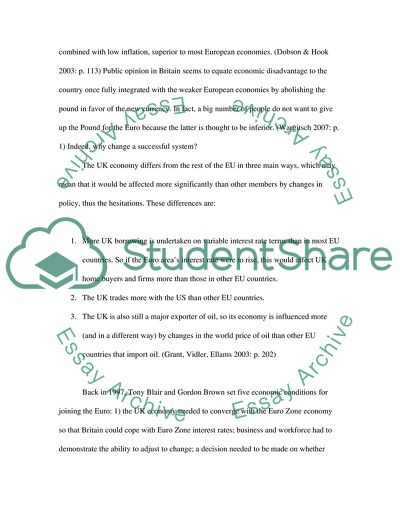Cite this document
(Why the UK joining the Euro Zone Could Be a Challenging Experience Essay, n.d.)
Why the UK joining the Euro Zone Could Be a Challenging Experience Essay. https://studentshare.org/finance-accounting/1713838-economically-the-case-for-the-uk-joining-the-euro-is-problematic-and-fraught-with-uncertainty-while-the-political-case-is-much-stronger-discuss-this-statement
Why the UK joining the Euro Zone Could Be a Challenging Experience Essay. https://studentshare.org/finance-accounting/1713838-economically-the-case-for-the-uk-joining-the-euro-is-problematic-and-fraught-with-uncertainty-while-the-political-case-is-much-stronger-discuss-this-statement
(Why the UK Joining the Euro Zone Could Be a Challenging Experience Essay)
Why the UK Joining the Euro Zone Could Be a Challenging Experience Essay. https://studentshare.org/finance-accounting/1713838-economically-the-case-for-the-uk-joining-the-euro-is-problematic-and-fraught-with-uncertainty-while-the-political-case-is-much-stronger-discuss-this-statement.
Why the UK Joining the Euro Zone Could Be a Challenging Experience Essay. https://studentshare.org/finance-accounting/1713838-economically-the-case-for-the-uk-joining-the-euro-is-problematic-and-fraught-with-uncertainty-while-the-political-case-is-much-stronger-discuss-this-statement.
“Why the UK Joining the Euro Zone Could Be a Challenging Experience Essay”. https://studentshare.org/finance-accounting/1713838-economically-the-case-for-the-uk-joining-the-euro-is-problematic-and-fraught-with-uncertainty-while-the-political-case-is-much-stronger-discuss-this-statement.


